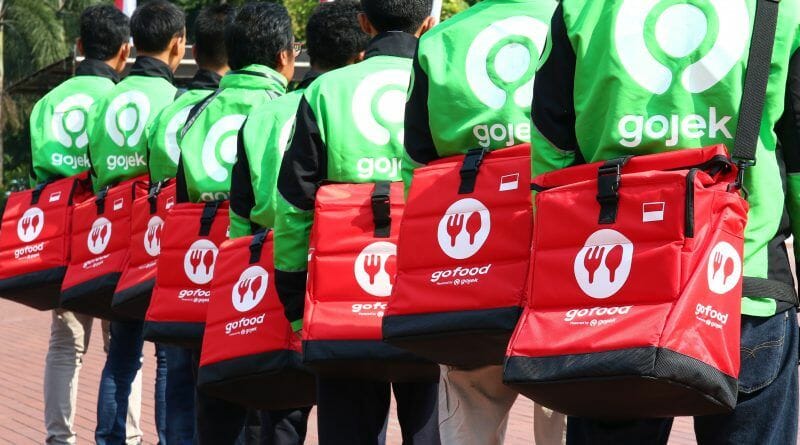Indonesian on-demand ‘super app’ Gojek has reportedly raised $1.2 billion from investors, even as rumors swirl of layoffs at the company.
Gojek – which offers food delivery, digital payments, and ride-hailing as its core services – secured the funding last week from unnamed investors, Bloomberg reports, citing an internal company memo.
The note – penned by co-CEOs Kevin Aluwi and Andre Soelistyo – indicated that the new funds are part of an ongoing funding round which has now raised $3 billion to date.
“We announced a first close of $1 billion at the start of last year and we set ourselves a target to increase overall funds raised to $2.5 billion for the group by the start of this year. We have easily exceeded our target,” Aluwi and Soelistyo said, according to Bloomberg.
The identity of the latest investors was not mentioned, though rumored participants include Singaporean bank DBS, credit card giant Visa, and Thailand’s Siam Commercial Bank. The latter two are known to be existing investors in Gojek.
The company is still seeing “strong demand” from existing and prospective backers despite “turbulence within the tech investment environment and the coronavirus pandemic”, the memo said, according to Reuters.
Highlighting Gojek’s approach to the Covid-19 outbreak, the co-CEOs wrote that the company will aim to provide “logistical capabilities [and] supply chains to keep people fed and payments” flowing.
Meanwhile, investment news site DealStreetAsia reported that Gojek has laid off more than 100 employees over the past month.
Aluwi and Soelistyo appeared to allude to a need for greater efficiency and long-term sustainability in their memo.
“Good businesses like ours will always attract investment, but as the economic slowdown takes hold, the availability of that investment will be reduced, so we should focus every dollar where we think it will make the most impact and not take our resources for granted,” the memo said.
Gojek did not comment on the reports of the funding or job cuts.
It’s locked in a fierce rivalry with Singapore-based ‘super app’ Grab. Launching with ride-hailing in Malaysia in 2012, Grab rapidly expanded to multiple Southeast Asian countries, and now offers a range of services including meal and grocery deliveries, financial services, and hotel booking.
Since launching its flagship motorbike-hailing service in 2010, Gojek has largely remained focused on Indonesia, only venturing into neighboring Singapore, Thailand, and Vietnam since late 2018. It provides food delivery services in the latter two markets.
Gojek was the first of the two rivals to introduce restaurant deliveries, trialing its GoFood service in 2015 as a way for its motorbike drivers to earn additional income. Grab followed with GrabFood a year later.
Last year, GoFood generated $2 billion in annual transactions volume for Gojek, making it the company’s second largest business unit after payments and financial services platform GoPay, which handled $6.3 billion.
Last September, Gojek claimed that GoFood held 75% market share in Indonesia, based on “internal research”. At the same time Grab claimed to have almost 50% market share in the country.
Angus Mackintosh, an analyst at CrossASEAN Research publishing with Smartkarma, said that the “fact that Gojek has managed to secure $1.2 billion in new funding over the past week says something about investors’ confidence in the long-term prospects for the company, and for Indonesia specifically.”
“The new funds give the company more firepower to compete against […] Grab,” he added.
The two companies have used heavy subsidies and other cash-burning techniques in the past to incentivize customers, drivers, and merchants to use their respective platforms. Despite a gradual move towards more sustainable competition, both are still thought to be far from turning an overall profit.
Reports last month suggested that Gojek and Grab were holding discussions over a possible merger, as high-profile investors piled pressure on Southeast Asia’s two biggest unicorns to join forces and expedite their route to profitability.
Gojek has reportedly raised $5.7 billion in total funding to date, from investors including Google, Tencent, KKR, Warburg Pincus, and Chinese food delivery and on-demand giant Meituan Dianping.
Grab has reportedly raised a total of $9.9 billion. It counts the likes of Softbank, Microsoft, Toyota, Goldman Sachs, and Citi Ventures among its backers.
Visa has invested in both platforms, while different companies within Japan’s Mitsubishi Group have also bet on both.
Gojek’s latest funding could strengthen its hand in any negotiation with Grab, which was said to be seeking overall control of a post-merger entity.
Uber competed against Gojek and Grab in Southeast Asia until early 2018, when it sold its regional operations – including meal delivery app Uber Eats – to Grab in return for a 27.5% stake in the Singapore-based company.





